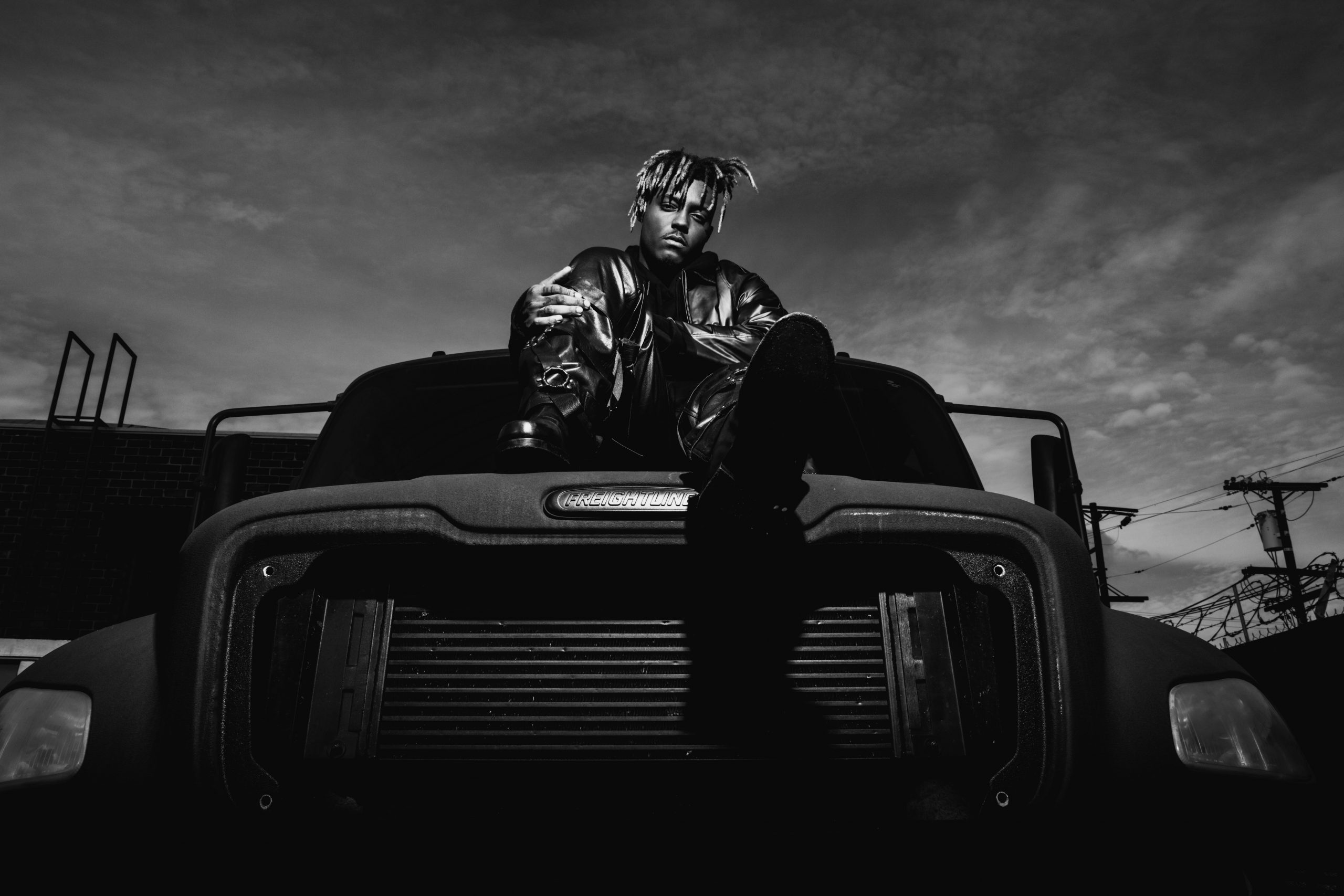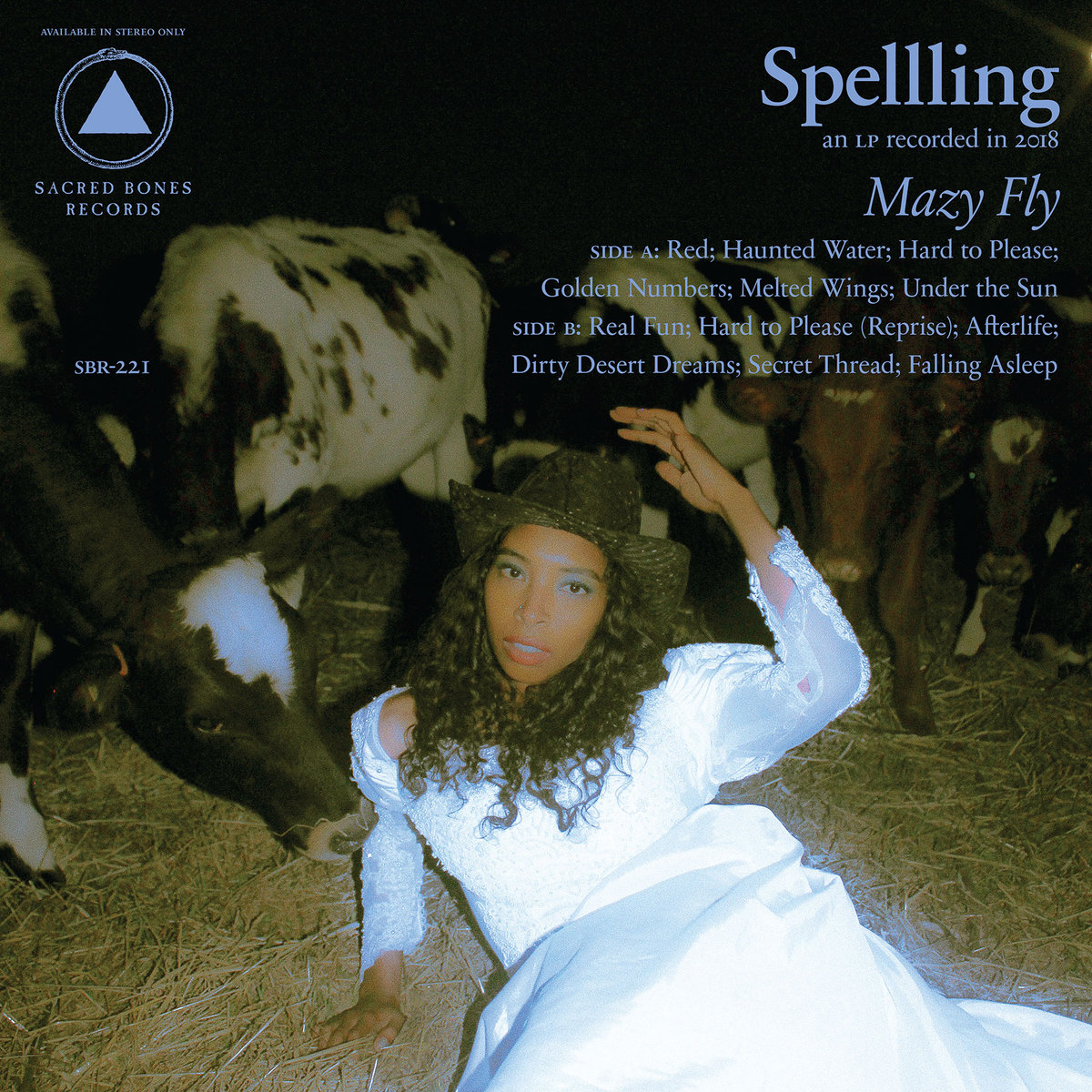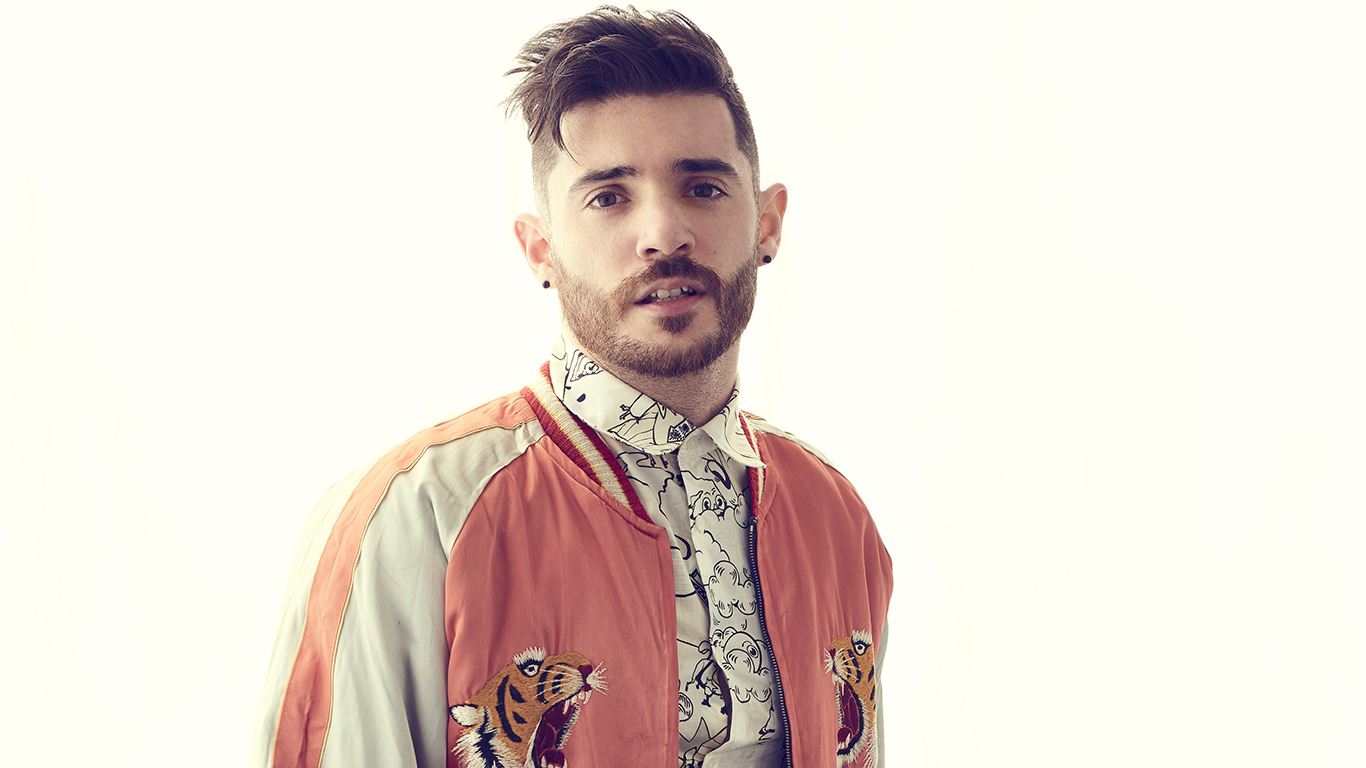Originally from Kinshasa, Pierre Kwenders has made a strong name for himself in the Montreal music scene, and has generously assisted other African immigrants in Canada fulfill their own creative ambitions.
‘José Louis and the Paradox of Love’ – Pierre Kwenders
Montreal may be as frigid as Central Africa is warm, but that hasn’t kept a considerable number of immigrants from the latter from making their way over to the former (the common language of French certainly helps with that whole transition, one would think). Along the way, plenty of positive intercontinental cultural exchange has taken place, the results of which can be heard across the city’s colorful and diverse live music scene.
Pierre Kwenders is one of many who exemplify that whole process. Born José Louis Modabi in Kinshasa in 1985, he arrived in Montreal at age 16 and has found his footing as a performing artist throughout the ensuing two decades. In his early career, he did numerous gigs across town and provided background vocals for Canadian electro hip-hop group Radio Radio, most notably on their 2012 album, Hâvre de Grace. Around then is also when he first got started with formally recording solo material, as his debut EP, Whisky & Tea, came out in 2013, and his debut LP, Le Dernier Empereur Bantou, ensued the following year. Ever since, Kwenders has maintained an active creative profile, manifested most recently with 2022’s José Louis and the Paradox of Love, which earned him a Polaris Music Prize (the equivalent of Canada’s “Grammys”) for Best Canadian Album; it was repackaged as an extended edition this past June.
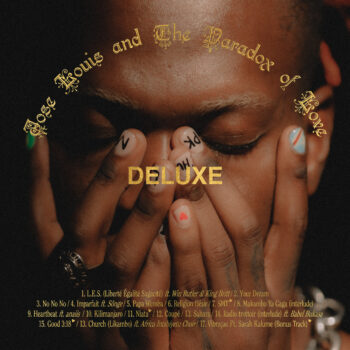
Kwenders keeps his style very diverse, drawing upon many genres and singing/rapping interchangeably in five languages – English, French, and three Congolese dialects. That open-minded spirit can also be seen in his willingness to collaborating with other artists, many of whom are part of the label he co-founded called the Moonshine collective, which hosts local shows in accordance with the shape of the moon all throughout the year. Kwenders performed at a good number of live venues this past summer and is currently on tour with British rock group, Everything Everything.
In an interview with Atwood Magazine, Kwenders details his creative approach and the process of encapsulating the creative flair of Africa for audiences over here in North America.
— —
:: stream/purchase José Louis and the Paradox of Love here ::
A CONVERSATION WITH PIERRE KWENDERS

This interview has been lightly edited for clarity.
Atwood Magazine: As someone who came from Congo and has lived in Montreal since adolescence, how have you been able to navigate your Canadian homeland all while honoring your African roots?
Pierre Kwenders: Well, there’s a lot of hard work and commitment, of course. I moved here when I was 16 in 2001. So, Congo was still fresh in my memory, and even though I left, I stayed connected. I still had family there [and] the music that I was listening to was coming from that country and that continent. So, I was really still connected to my roots, and when I started making music, I really wanted to showcase that as well.
It’s just a lot of perseverance, but also, Montreal people are so open-minded. There’s a lot of people here who come from different backgrounds. Artists come here and find themselves and connect with different artists in order to start their own path. That is kind of what happened to me. I started singing in a choir, and after I left the choir, I found some other people that were already making music here in Montreal – [for instance,] Radio Radio, a group from the east coast of Canada, Nova Scotia and New Brunswick. I started singing background vocals for them at some point and then started recording some songs of my own. I put out an EP and the response was pretty amazing, so I thought, “Why not keep going?” The rest is history.
It seems like you mix a lot of different components into your music – different genres and different languages. What do you think is the outcome of having all of these different elements coming together on the same tracks?
Pierre Kwenders: To me, it’s more like building bridges and really showcasing the fact that music has no boundaries. I remember growing up and listening to songs from other countries – they could be English, or from South Africa or Côte d’Ivoire – and not understanding anything they were saying. But someway, somehow, I could feel something out of it. For me, that really is the main thing; the most important thing. I want people to feel something out of my music before they even connect with the lyrics.
If you want to connect with the lyrics, you still can. Technology is amazing now. We have AI that can translate anything, so it’s really easy – but first of all, it’s about the connection people have with music. Most of the time, it’s an emotional connection. It comes with comfort but also with moments of happiness. You have a song that just makes you feel happy and, of course, a song that talks about happiness, someway, somehow, will make you feel happy, even if you don’t understand [the lyrics].
So, that’s what I really want people to get from my music. Sometimes, I will hear something in Lingala, for instance, and I will start the song in Lingala, but in the middle of the song, I will start singing in another language. If it sounds nice and it makes sense, there’s always a way to make it happen.
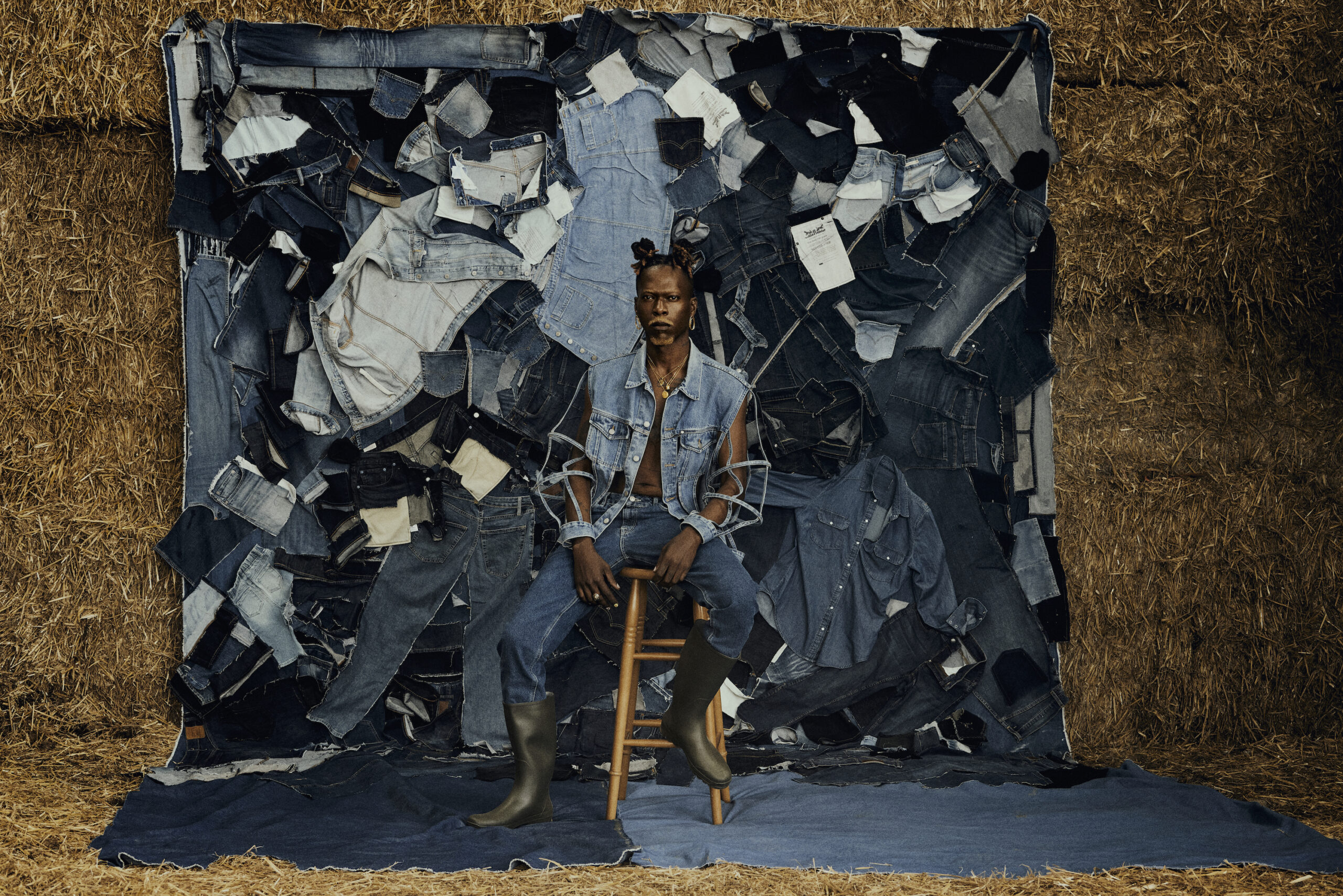
Next year will mark the 10th anniversary of your first full-length album, Le Dernier empereur bantou. If you can think back to when you were making this album, what were some of the hopes you had as an aspiring musician back then, and do you feel like you’ve been able to achieve them all in the decade since then?
Pierre Kwenders: You know, to be honest, I never really had a specific objective. For me, it’s always important to work as hard as possible and get to the place where I never thought I could be. Since my first album came out, I have played in the Apollo Theater in New York City, and it was amazing– it’s a legendary venue. Of course, it wasn’t my own show– it was part of the big Africa Now! Festival that they have, back in 2018. It’s one of my most memorable shows [of my career so far].
Last year, I won the Polaris Music Prize, which is the biggest Canadian prize for music. It was an honor for me to get that, but for me, I don’t see all of that as one accomplishment. It’s all one step towards a bigger goal. It might sound cheesy to say that “the sky’s the limit,” but I do a lot of things. I also DJ and have a collective, Moonshine, which will also be celebrating 10 years next year. Those are all things that I’m proud of, but I want to do more. I cannot pinpoint them right now, but as time goes by, I always want to have the feeling that I’m doing something new or achieving something bigger.
Your most recent album is Jose Louis and the Paradox of Love, released last year. You say that it’s “both an embrace of African musical tradition and an evolution of it.” To me, that sounds like there is a mixture of old and new in the music. How do you achieve the right balance of both?
Pierre Kwenders: Well, personally I don’t think there is anything new [in the album]. I think the technology has just advanced and we have better machines to do the same thing that we’ve always been doing. The beauty in what I do, especially in this album, is that I pay homage to singers like Papa Wemba, Tshala Muana and M’Bilia Bel from Congo. I used a little bit of their lyrics here and there in my song as homage to them. I also have a whole song called “Papa Wemba,” which pays homage to him. I wanted it to sound like a Papa Wemba song, and one of my favorite songs of his is “10ème Commandement.” My song, “Papa Wemba,” doesn’t really sound like that, but in my imagination, I wanted a song that Papa Wemba could sing if he were still alive. That was my way of showcasing that, but I don’t think that there is anything really new.
We all take inspiration from [the music of the past] and add a little bit to make it more of our own. I think that’s what I do, and of course, you will hear sounds of newer genres like Afrobeats or Congolese Rumba [in my records], just because I grew up listening to that music and I’ve been inspired by that. So, of course, there will always be those little things that will remind people of [African music]. In this album, for instance, I have a song called “Coupé,” which kind of takes us to Coupé-Décalé, a genre from Côte D’Ivoire. Maybe it’s new or modern, we’ll see… but I like to consider myself as a teacher or preacher. I’m just here to kind of educate people in music of the whole world.
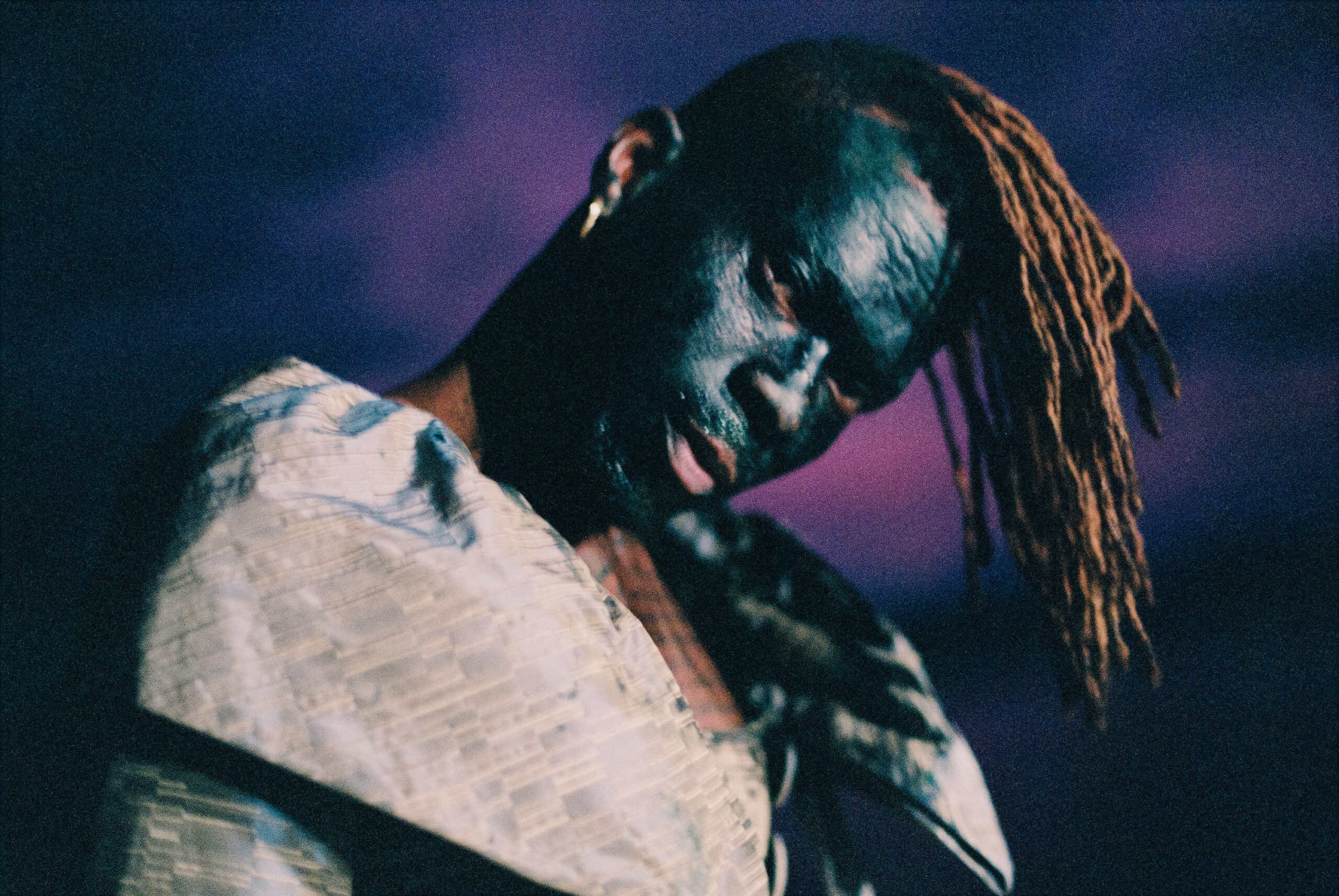
A deluxe edition of the album just came out with some new material. How does it expand or improve upon the original version?
Pierre Kwenders: It’s basically a gift to the fans and everybody who has discovered me since last year, when the album came out. It’s just me being really grateful for the love I received. It so happens that I had some songs that I wanted to put out [on the original LP] but couldn’t, for many reasons. But then I was like, “Since I’ve already begun working on my next album, it doesn’t really make sense for me to keep these songs for the next album.” And I thought, “This is perfect. Let me just give a gift to all the new fans.” I had these alternative versions of “Heartbeat” and “Vibraçao,” that I really, really wanted to put out, and I thought, “Yes, we can finally put them out!” Let’s just make people happy and have more love, you know?
Let’s talk about Moonshine, the DJ/arts collective you helped to found. What is Moonshine up to these days? What makes this a special project for you?
Pierre Kwenders: It’s been almost 10 years now, so we’ve been up to a lot. At the beginning, and still now, Moonshine was a monthly lunar-based party that happens every Saturday after the full moon. We’ve been doing Afrobeats dance parties with sounds from all over the world. Afrocentric sounds, piano, Kuduro, Batida, Coupé-Décalé, Congolese Rumba, Techno… name anything, and you can hear it there. Like I said, my music is about creating these bridges and showcasing that music has no boundaries, and that’s exactly what we wanted to do with Moonshine. Back when Moonshine started, there wasn’t really a place where you could do music like that. Today, when you come to Montreal, it’s another story– there are a lot of people, a lot of collectives, which is great.
Right now, Moonshine is still doing parties. But we also are an artist and a label– so we travel we go abroad for festivals, and we collaborate with different collectives, as well. In terms of labels, we have different artists. We signed Andy S– a rapper from Abdijan, Côte D’Ivoire– who put out a first single, “Prodada,” not too long ago. We have Mighty Falls, who’s going to put out a new single this week. Moonshine has parties at five [undisclosed] locations [you have to send an SMS to be told where they are] and we’re working on opening a sixth one by next year. A lot of things are happening– hopefully, more artists will be signed to the label soon. We definitely, definitely want more music.
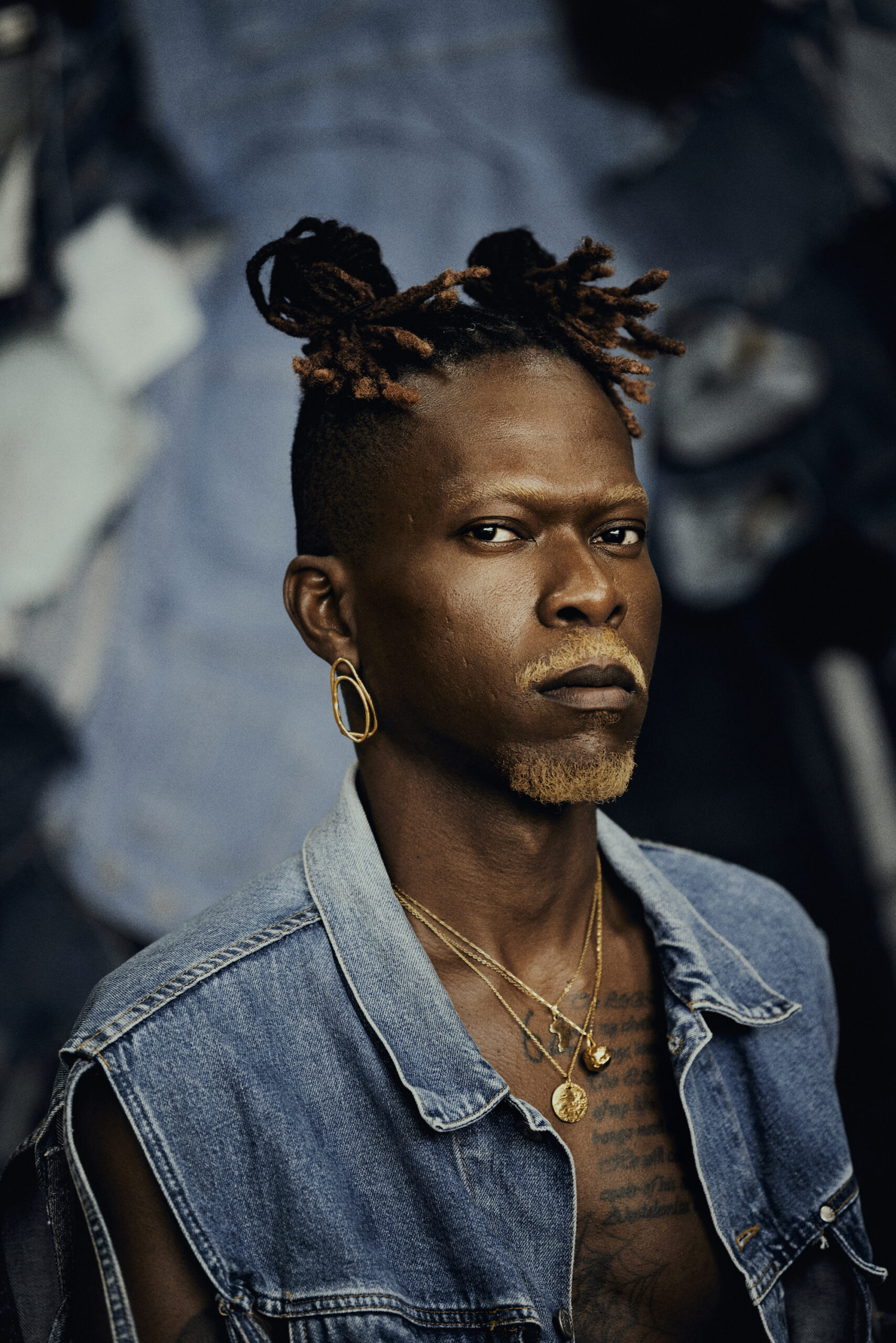
Have you had any memorable performances lately? Most of all, what was it like performing at the Festival de Jazz in Montreal this past summer?
Pierre Kwenders: That was actually one of my best shows this summer. It’s always fun to play in Montreal, but I got to play at a festival outdoors, which made it feel even better. It was really one of my highlights of the summer. But of course, there was also La Fête Nationale du Québec, also known as La Saint-Jean, at the Plaines D’Abraham in Quebec City. It was my first time performing at La Saint-Jean. I’ve been to Quebec City a few times around the time of La Fête Nationale, but I’d never performed there at la Plaines D’Abraham. So, for me to be there performing for around 40,000 people– I couldn’t even see everyone, there were so many!– was definitely one of the best moments of my summer.
What’s coming up next?
Pierre Kwenders: I’m going to be on tour in the fall with this U.K. band called Everything Everything. It’s a North American tour, a few dates in the States and some in Canada, so check that out!
— —
:: stream/purchase José Louis and the Paradox of Love here ::
— — — —

Connect to Pierre Kwenders on
Facebook, Twitter, TikTok, Instagram
Discover new music on Atwood Magazine
© Kim Yang
:: Stream Pierre Kwenders ::

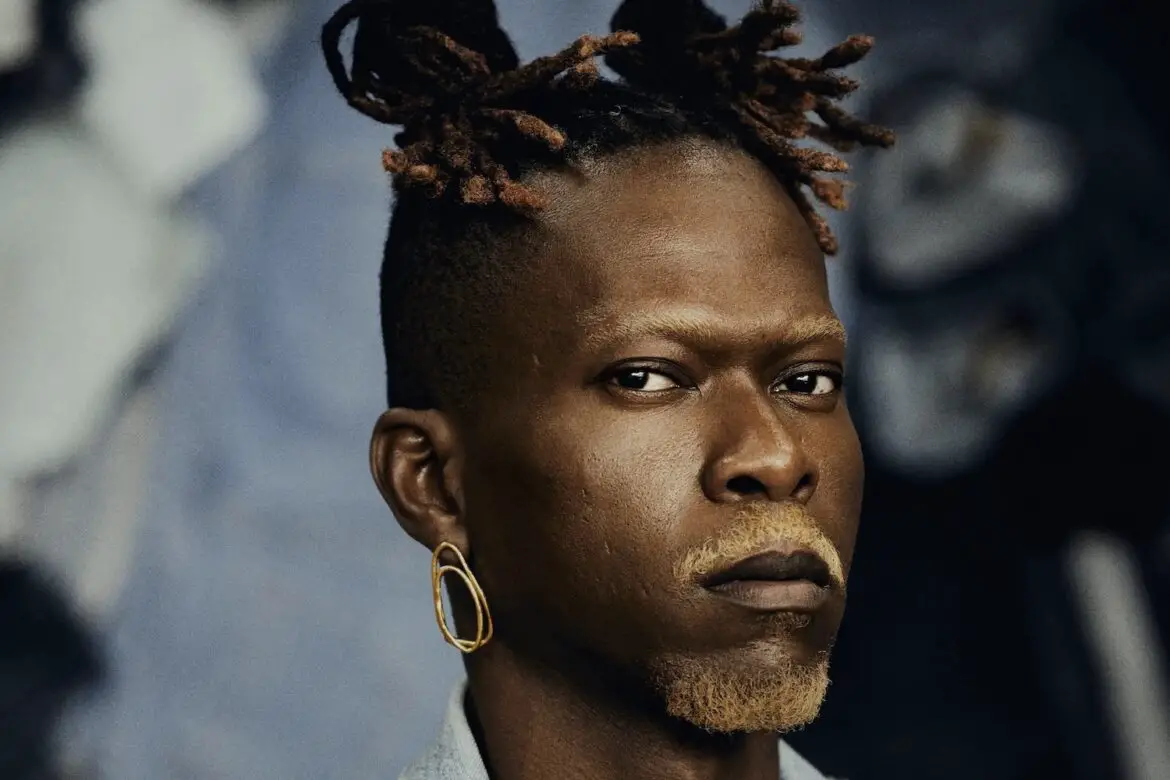
 © Kim Yang
© Kim Yang